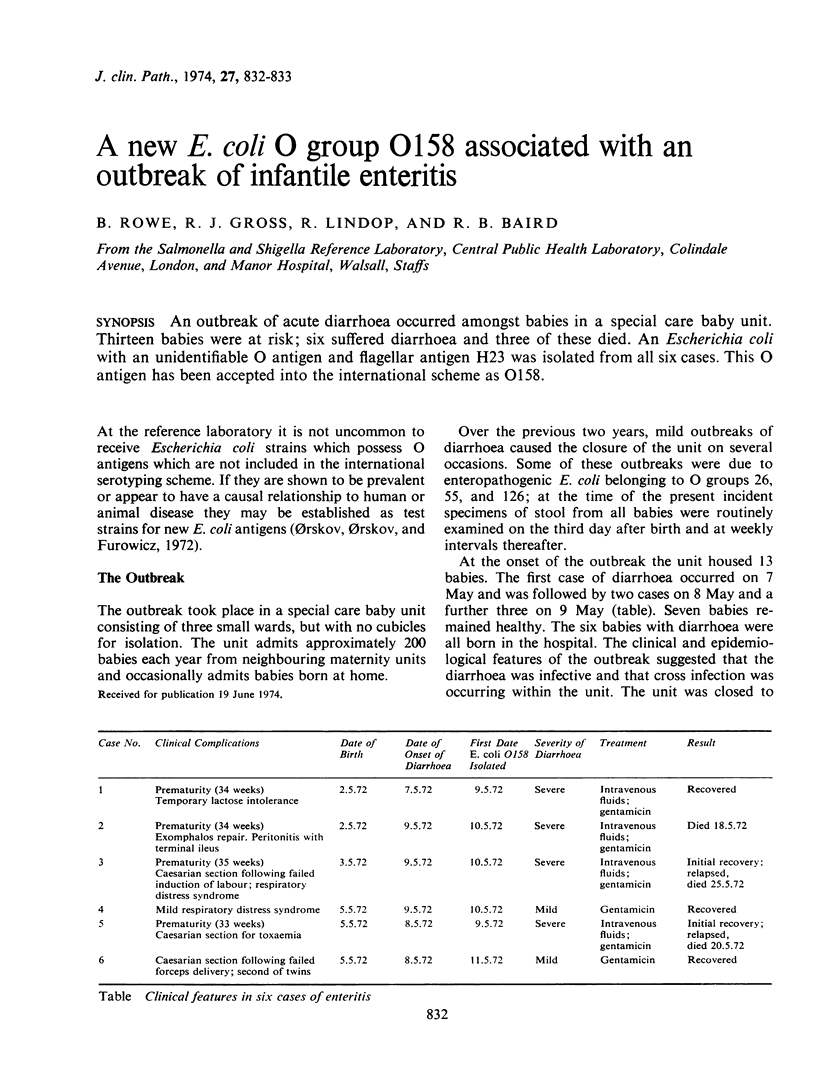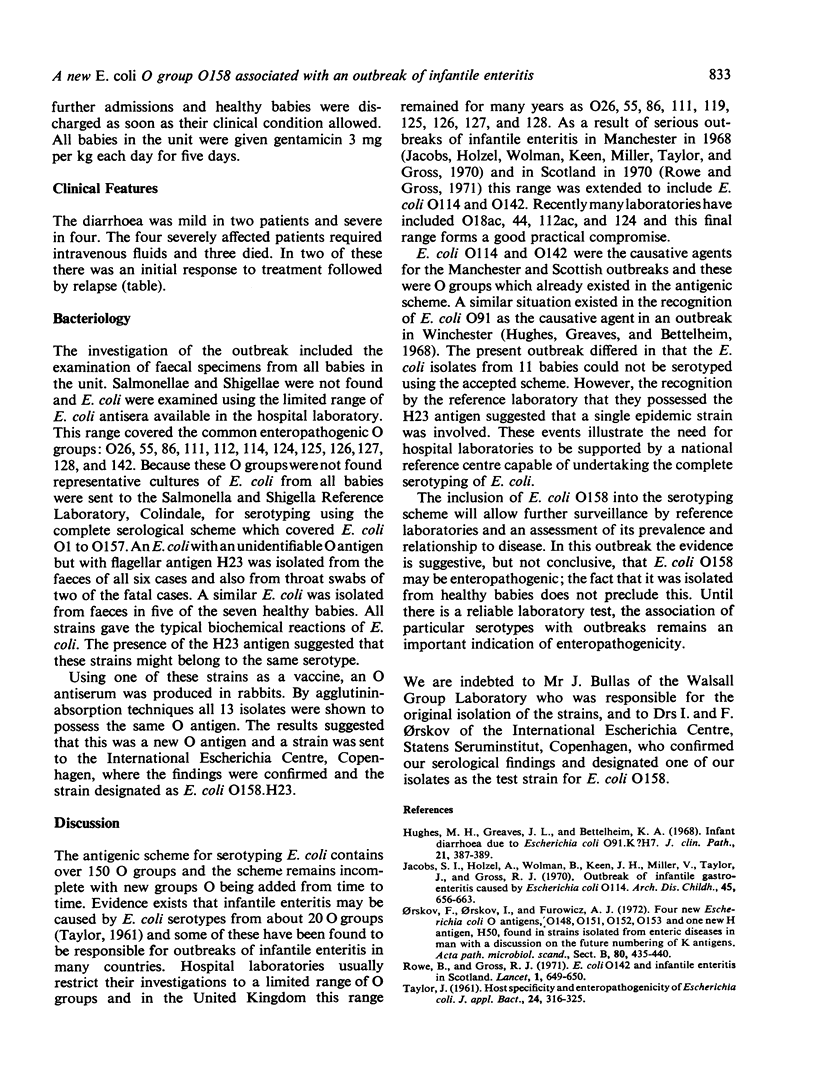Abstract
An outbreak of acute diarrhoea occurred amongst babies in a special care baby unit. Thirteen babies were at risk; six suffered diarrhoea and three of these died. An Escherichia coli with an unidentifiable O antigen and flagellar antigen H23 was isolated from all six cases. This O antigen has been accepted into the international scheme as O158.
Full text
PDF

Selected References
These references are in PubMed. This may not be the complete list of references from this article.
- Hughes M. H., Greaves J. L., Bettelheim K. A. Infant diarrhoea due to Escherichia coli 091 K? H7. J Clin Pathol. 1968 May;21(3):387–389. doi: 10.1136/jcp.21.3.387. [DOI] [PMC free article] [PubMed] [Google Scholar]
- Jacobs S. I., Holzel A., Wolman B., Keen J. H., Miller V., Taylor J., Gross R. J. Outbreak of infantile gastro-enteritis caused by Escherichia coli O114. Arch Dis Child. 1970 Oct;45(243):656–663. doi: 10.1136/adc.45.243.656. [DOI] [PMC free article] [PubMed] [Google Scholar]
- Orskov F., Orskov I., Furowicz A. J. Four new Escherichia coli O antigens, O148, O151, O152, O153, and one new H antigen, H50, found in strains isolated from enteric diseases in man with a discussion on the future numbering of K antigens. Acta Pathol Microbiol Scand B Microbiol Immunol. 1972;80(3):435–440. doi: 10.1111/j.1699-0463.1972.tb00057.x. [DOI] [PubMed] [Google Scholar]
- Rowe B., Gross R. J. E. coli O 142 and infantile enteritis in Scotland. Lancet. 1971 Mar 27;1(7700):649–650. doi: 10.1016/s0140-6736(71)91582-0. [DOI] [PubMed] [Google Scholar]


